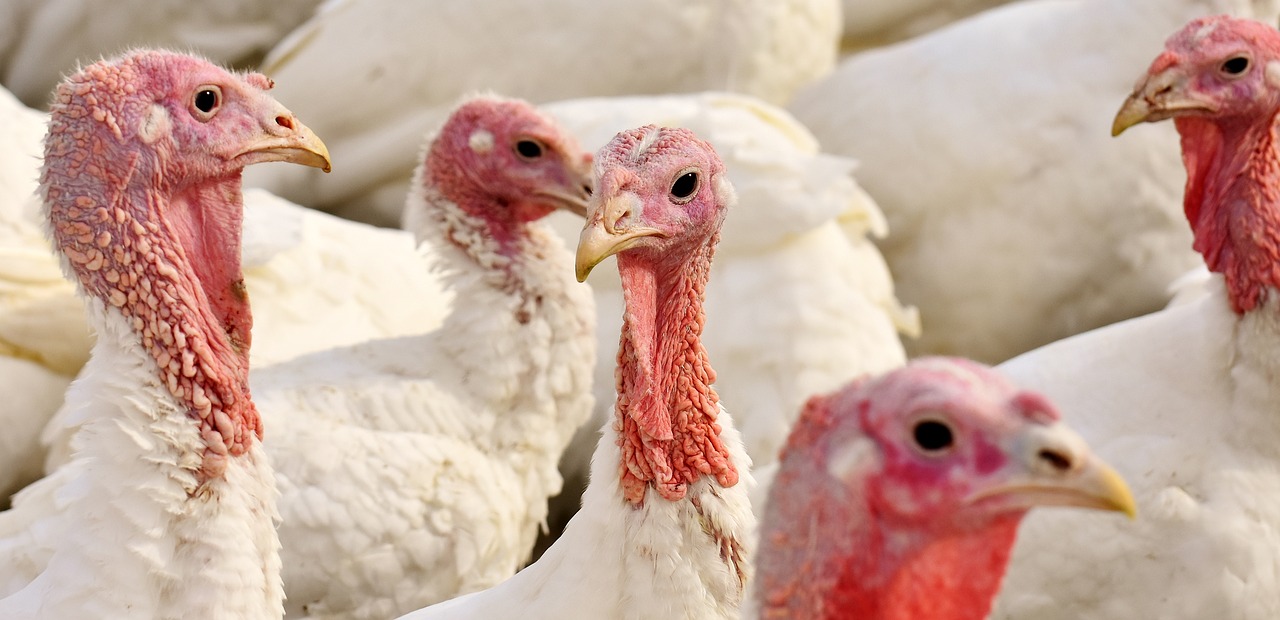Try our new free GreenChoice - Food Scanner mobile app!
DOWNLOAD-
-
-
Diets
Allergies
Take our 30-second quiz & we’ll filter our site to show only products that match your dietary preferences.
- GCNow
- A Day in the Life of a Factory Farm Turkey

The life of a factory farm turkey can only be described as a horror story. As you’re preparing for Thanksgiving, consider the following before you head off to the grocery store to pick out your bird:
The torment begins at birth. Turkeys are extremely social animals that learn social skills from their mothers. In commercial turkey farms, poults (baby turkeys) are birthed in incubators where they never know their mothers. Up to 75,000 birds are crammed into warehouses, where they are confined so tightly that each turkey may only have 2.5 to 4 square feet of space. This number only shrinks as they grow (1).
Overcrowding makes poults uncharacteristically aggressive. The industry’s “simple solution” to this involves mutilation without anesthetic. Turkey poults are debeaked, de-toed (three from each foot), and de-snooded (the red fleshy bit over a turkey’s beak used to attract mates). This is done by means of shears, microwaves, or electrical current (2). This practice is tremendously stressful for young birds. Some die from shock, and others starve to death before they are able to eat again.

In addition, the tight quarters are a breeding ground for viral and bacterial infections, along with other health issues. The ground is covered with feces and urine, which cause sores to develop. There is so little ventilation in these sheds that the air becomes polluted, resulting in respiratory infections and various eye problems such as swelling, discharge, and even blindness (2).
Domesticated turkeys, specifically those raised in commercial farms, are drastically different from their wild counterparts. Selective breeding has resulted in rapid growth rates, which leads to extensive health issues among the birds. Domestic males grow to a weight three times larger than wild males in just four months, with breasts so large that they become unable to mount females to reproduce naturally. This leaves workers responsible for artificial insemination (1).

The process of artificially inseminating turkeys is as disgusting as it sounds. The females are restrained upside-down and injected with syringes of semen collected by human “milkers”, who forcibly masturbate males.
By now, if you haven’t been completely turned off of the idea of having turkey this Thanksgiving, there are farms that do follow practices that protect the animals. Good Shepherd Poultry Ranch raises free-range heritage turkeys while focusing on sustainability, so that they do the least amount of damage to the surrounding ecosystem. Heritage turkeys by definition are naturally-mating, have a long, productive lifespan and a slow growth rate (approximately 28 weeks). Farmer and owner Frank Reese’s goal is to protect the heritage bird, and to increase their presence on farms to reduce demand from the large factory companies.
In addition to getting your birds from farms that support animal welfare, you can also contribute and help to stopping these practices by signing petitions against the factory farms that are committing these heinous acts, such as this one against turkey industry conglomerate Butterball.
***
GreenChoice, PBC has evaluated and rated more than 340,000 food & beverage products across hundreds of attributes related to diet, health, and sustainability. Easily find the best products for you, the planet, & your budget. Download the free GreenChoice app for Apple iOS or Android!